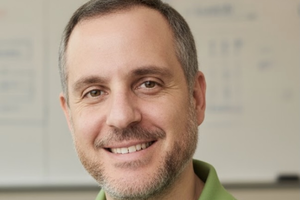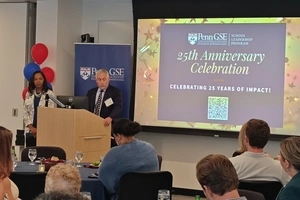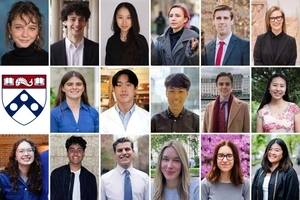Educators and students in urban settings face many challenges. Limited resources, leadership turnover, achievement gaps, and factors that affect students outside of school, such as poverty, often pose significant hurdles to teaching and learning. At Penn GSE, budding educators learn best practices for tackling such problems and gain hands-on experience through the School’s longstanding partnership with The School District of Philadelphia. Here, five alumni making an impact on K–12 and higher education in cities across the country share their stories. While the COVID-19 crisis has dramatically altered the educational landscape since these interviews were conducted, the dedication and successes of these alumni remain inspiring.
Building Trust to Bolster Students
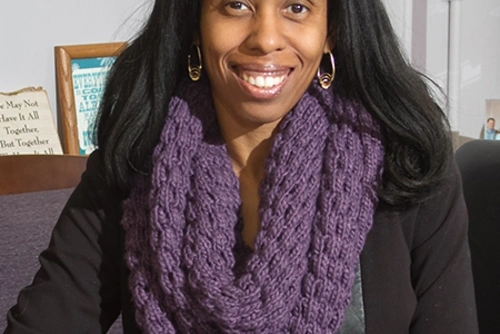
In a freshman sociology class at Penn, Rachel Skerritt, C’99, GED’99, read Jonathan Kozol’s 1991 Savage Inequities, a book about the educational neglect of urban students. That experience, along with volunteering at a school, led her to begin her master’s study in education as an undergraduate by submatriculating at Penn GSE.
“To read about how subjective and arbitrary the path to educational success is, based on your ZIP code or your parents’ education, was very compelling to me,” says Skerritt, headmaster of Boston Latin School in Massachusetts. The nation’s oldest public school, Boston Latin is Skerritt’s alma mater and the place where she began her career, as an English teacher, after graduating in 1999. By 2010, she was relaunching the under-performing Eastern Senior High School in Washington, DC.
Eastern had thirteen principals in a dozen years before her arrival, Skerritt says, along with dismal academic proficiency scores. Many students faced neighborhood gun violence. Under her leadership, the school prioritized safety, adopted the rigorous International Baccalaureate program, and improved graduation rates.
“To read about how subjective and arbitrary the path to educational success is, based on your ZIP code or your parents’ education, was very compelling to me.”
“Leadership is such a critical element to school successes,” she says. “You have to get the right people on the bus, those who are willing to drive the extra mile.” Skerritt hired new teachers and staff and immersed herself in the school, living two blocks away and regularly attending school events.
Rather than assuming an African American principal who grew up poor in Boston could easily connect to low-income African American students, Skerritt focused on earning trust. It was a lesson she learned at Penn GSE as a student teacher working with a high schooler named Steven. Despite being a student at an Ivy League university, Skerritt figured she would naturally understand him. “He very quickly educated me on how little we had in common,” she says. “He was not naïve about our educational divide.”
In 2017, Skerritt became the first person of color to lead Boston Latin, a top-rated public magnet school with a diverse student body in grades seven to twelve. But even at a school with resources and a reputation for academic excellence, challenges remain.
“There is an urgency for students still struggling to perform to their potential,” Skerritt says. She recently changed the school’s open house format to focus on parent-teacher conferences specifically for families of struggling students. Skerritt emphasizes the students’ ability to succeed.
The initiative is rooted in the calling Skerritt found at Penn. “We always need to look at what we provide for students through the lens of equity,” she says.
Fostering Hope Among Students and Teachers
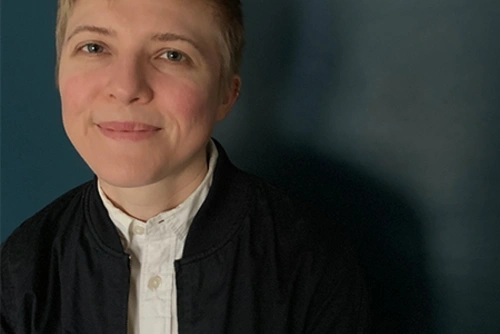
Elizabeth Humphries, GED’09, entered education to address inequalities in the educational system. Teach for America and its partnership with Penn GSE allowed her to pursue a master’s degree as a history teacher at John Bartram High School in Philadelphia. There she gained valuable experience in navigating a complex cultural environment.
Humphries reports that Penn GSE coursework on issues of race and unconscious bias guided her efforts to build trust with her students in a school context with many white teachers, including herself, and a largely African American student body. Her studies also inspired her to address issues of race in the curriculum.
“My intent was to not shy away from the hard truths of history,” says Humphries. Now a history specialist for the Oakland Unified School District in California, Humphries began at Bartram by teaching units about global inequality. “I had hoped this would prompt students to ask lots of good questions about how we ended up in this situation,” she says. Instead, Humphries saw that the units were deflating students’ sense of hope. So she refined her approach to focus on resistance movements from the Civil War through the Civil Rights era.
“I learned that students already feel the weight of how unjust the world is,” she says. “As a teacher, while I needed to help them understand how historical events shaped inequality, I also needed to provide them with examples of how people have tried to carve out a way forward.”
In 2011, Humphries joined a diverse middle school in Oakland as a teacher, and after three years took on her current role as a teacher coach, continuing to draw upon her Penn GSE experience to support those she instructs. Like so many urban districts, Oakland has faced budget cuts, and for Humphries these have meant working with teachers one-on-one rather than convening district-wide professional development. She relies on the teacher inquiry approach she learned at Penn GSE, in which instructors are asked to study their own practices and determine what works and what doesn’t.
“In an environment where we have no resources,” she says, “what we do have is the chance to build relationships that make teachers feel that they are valued experts.”
Cultivating Community and Raising the Bar
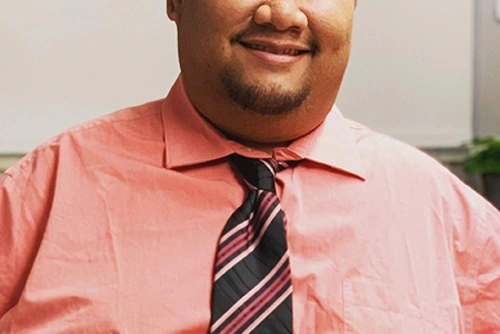
At Penn GSE, Anthony Andre Zarate, C’12, GED’13, spent a lot of time discussing not only pedagogy and curricula, but also the importance of building relationships with students and their families.
“We talked a lot about investing in more than just academics,” says Zarate, an instructional coach for fourth through eighth grade at Acero Brighton Park Elementary School, a charter school in Chicago, Illinois.
Zarate, who changed his undergraduate major at Penn from nursing to urban studies before submatriculating at Penn GSE, has ridden that philosophy to impressive success. After graduation, he entered Teach for America and became a founding fifth-grade general education instructor at Acero Brighton, where he won the school’s Teacher of the Year Award. In 2016, as the seventh and eighth grade English language arts teacher, he was a finalist for Illinois Teacher of the Year.
Zarate attributes the recognition to relationships he built with the school’s largely Latinx student population, in which many students, like Zarate, come from immigrant families.
“I connected with them culturally,” says the Filipino American, “and empathized with what parents want for their children.”
Zarate motivated his students, many of whom lagged behind in reading, with the catchphrase “fight for your spot”—meaning these students of color deserved a seat at the table among decision makers. “It helped them understand they could be leaders and make change,” he says.
Perhaps more important, Zarate set high expectations. “When students are struggling, you might think you have to scale down the work,” he says. “No. They want to feel challenged, and when you challenge them, they always meet the bar.”
With background context, his sixth graders could discuss a sophisticated novel like Lord of the Flies. He stayed with his students through eighth grade, exposing them to The Great Gatsby, Shakespeare, and Gabriel García Márquez. On standardized tests, the percentage of his students at or above the national average in reading jumped dramatically over the course of four years, he says. In 2019, Zarate assumed his current role, in which he focuses on bringing best practices to teachers. While conscious that charters draw away funds from public schools—a major challenge for many urban districts—Zarate believes in school choice. He recently obtained a fellowship to design a new charter school model. If it is approved, Zarate will head the school and once again focus on rigorous academics and building relationships with students and parents.
“You basically have to work as a team,” he says. “The students, the parents, the community plus you equals the best.”
Creating Opportunities for Students and Educators
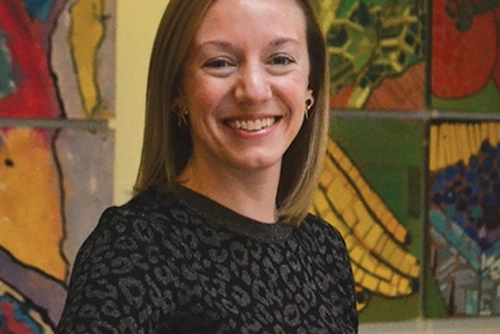
As she studied for MCATs in her senior year of college, Meredith Mehra, GED’07, had “a quarter-life crisis.” She realized she didn’t want to go to medical school. After a volunteer stint opened her to the joys of teaching, she entered Penn GSE via the School’s partnership with Teach for America, working as a math teacher at Philadelphia’s Thomas FitzSimons High School.
Mehra, now deputy chief of teaching and learning for The School District of Philadelphia, says she realized her career change depended upon options that many of her students did not have. “That was the big ‘aha’ for me,” she says. “We should all be afforded options when we change our mind.” To that end, Mehra made it her mission to create choice for students.
At FitzSimons, she developed a job-shadowing program for juniors, exposing them to professionals such as doctors, real estate agents, and water department workers.
“I had a responsibility to ensure that my students got to know a variety of professionals so they could make an informed decision as to what it is they wanted to do,” she says.
After four years, Mehra reluctantly left the public school system for a KIPP charter school, a place with the resources to help her gain leadership skills. Over five years, she advanced to principal. She then returned in 2014 to The School District of Philadelphia as director of teacher coaches and rose to her current position. Today she oversees teacher professional development for the District—the kind she was unable to find in her early years as a teacher.
“Urban educators and leaders are constantly driving forward with a sense of urgency,” she says. “I want to give them an opportunity to process and reflect on what they are experiencing in their work, as I was able to do at Penn GSE.”
Team professional days and quarterly progress-monitoring meetings are opportunities for her staff to think about what works, analyze data, and adjust their approach. School-based teacher leaders get monthly professional development and coaching to refine their skills and build leadership qualities. New hire orientation was revamped from a day of mostly turning in paperwork to a five-day professional learning experience that addresses equity, classroom management, and instruction.
“We’ve changed the expectation around professional development,” she says. “We’ve shown it should model high-quality teaching practices that folks can take and apply in their classrooms.”
Establishing a New Model for Urban Higher Education
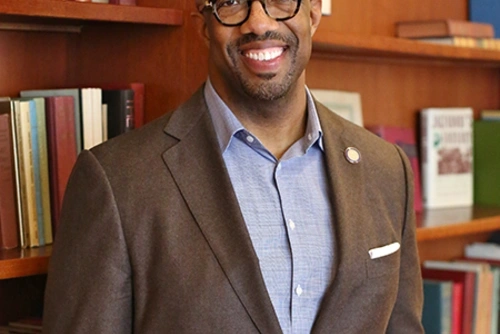
When Michael J. Sorrell, GRD’15, assumed the presidency of historically black Paul Quinn College in Dallas, Texas, in 2007, he faced a mismanaged school, plummeting enrollment, and the potential loss of accreditation. Sorrell applied his varied professional background—lawyer, Clinton White House advisor on race, communications and crisis-management strategist—to transform the private, faith-based liberal arts school. Today, it is providing new solutions to college affordability as the nation’s first urban work college.
“I had a background that allowed me to see opportunity where others might only see problems,” he says.
Early on, Sorrell addressed the food desert surrounding the campus and larger community by ending the football program and turning the playing field into an organic farm that students maintain. Since then, he has transformed the college into a more vibrant campus that has nearly tripled its enrollment to 550 black and Latino students with more than 80 percent on Federal Pell Grants for low-income students. His ambitious goal: eradicate intergenerational poverty.
“What Paul Quinn believes under my leadership is that higher education has a responsibility to turn itself outward and address the needs of the day in a very plainspoken and honest fashion,” he says. For Sorrell, that means tackling national problems such as college affordability.
Enter the urban work college model that distinguishes Paul Quinn. As one of eight work colleges in the United States, and the only one in an urban environment, Paul Quinn receives federal support and requires students to work either on- or off-campus all four years as a way to reduce the cost of their education while gaining résumé-worthy experience. The college also slashed its tuition to $16,000, an amount that can be covered by Pell Grants and income from students’ jobs.
“Most students go to school for far less than they would anywhere else,” Sorrell says.
Sorrell enrolled in Penn GSE’s Executive Doctorate in Higher Education Management program while president and used his dissertation to explore in depth how a work college model could be adapted for an urban environment. “The dissertation made me an expert,” he says. “Penn GSE is an amazing school of education. It gave me access to some of the very best minds in the field.”
Sorrell aims to spread his model on a national scale, even as he continues to seek new solutions to poverty.
“The mistake a lot of people make is that they believe that problems are solved,” he says. “No problem is ever solved. You’ve temporarily found a way to beat back an inevitable tide. Problems morph. They require you to morph and your solution to morph.”
This article appeared in the Spring 2020 issue of The Penn GSE Magazine.
Media Inquiries
Penn GSE Communications is here to help reporters connect with the education experts they need.

